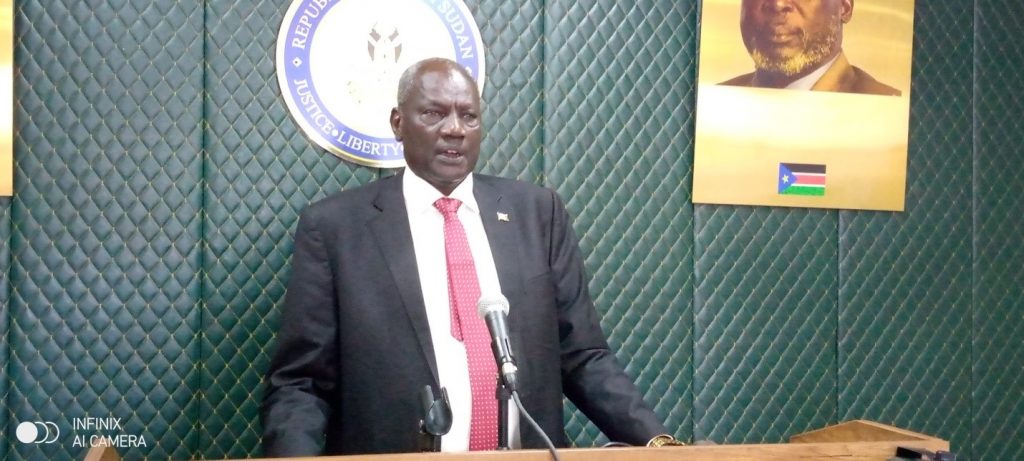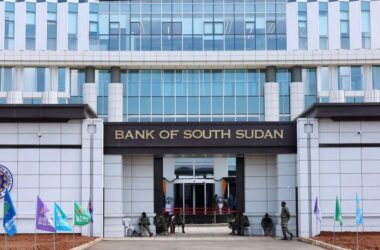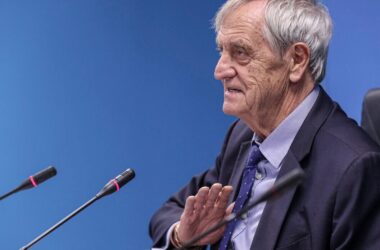
By Taban Henry
The government of South Sudan on Friday warned its people to learn from the post Rwandan conflict.
This was revealed after the Council of Ministers’ meeting number three where the Minister of Cabinet Affairs presented a report on the visit of the South Sudanese delegation to Rwanda under the theme reconciliation, forgiveness and healing.
Earlier last year, the delegation that comprised senior politicians and army officers paid a courtesy visit to Rwanda with an aim to share experiences as Rwanda underwent the same experiences of conflict like South Sudan.
Speaking after the Council of Ministers’ meeting, the Minister of Information, Communication and Postal Service Michael Makuei Lueth called on the people of South Sudan to learn from the post Rwandan conflict.
According to Makuei, “what comes from our visit to Rwanda was that there is need for reconciliation, healing and forgiveness. If you forgive yourself definitely you will develop like Rwanda”.
Makuei added that Rwanda passed a very serious situation as a result of genocide which has been known worldwide adding that nevertheless they managed to overcome the genocide and turned it into an advantage instead of continuing with conflict they decided to work in the interest of the people of Rwanda.
“Rwanda developed and it’s among the developed countries in Africa because the people of Rwanda decided to forgive themselves and live together and work for the overall interest of their people and the country,” he stressed.
Makuei stated that they took the case study of Rwanda which he termed as beneficial to the people of South Sudan to take Rwanda as an example.
South Sudan just like Rwanda in December 2013 got embroiled in a civil war that began as a primarily political conflict. At that time President Salva Kiir fell out with his former Vice President Dr. Riek Machar, over allegations of coup.
The youngest country spate into violence followed a particularly bloody summer, which saw hundreds of casualties amid heavy fighting in the capital Juba.
In 1994, Rwanda’s population was composed of three ethnic groups: Hutu, Tutsi and Twa. Approximately 85% of the country was Hutu, while 14 percent was Tutsi and one percent was Twa.
Rwanda was ruled by leaders of the Hutu majority from the time it gained independence in 1962 until the genocide in 1994. During this time the Tutsi minority suffered systematic discrimination. They were also the targets of periodic outbreak of the violence. Hundreds of thousands of Tutsi fled the country in the 1960 and 1970s.
The Rwandan Genocide lasted for 100 days, it’s one of the most notorious modern genocides and during the 100 days period from April through July one million ethnic Tutsi and moderate Hutu were killed as international community who are the UN peace keepers stood by.


